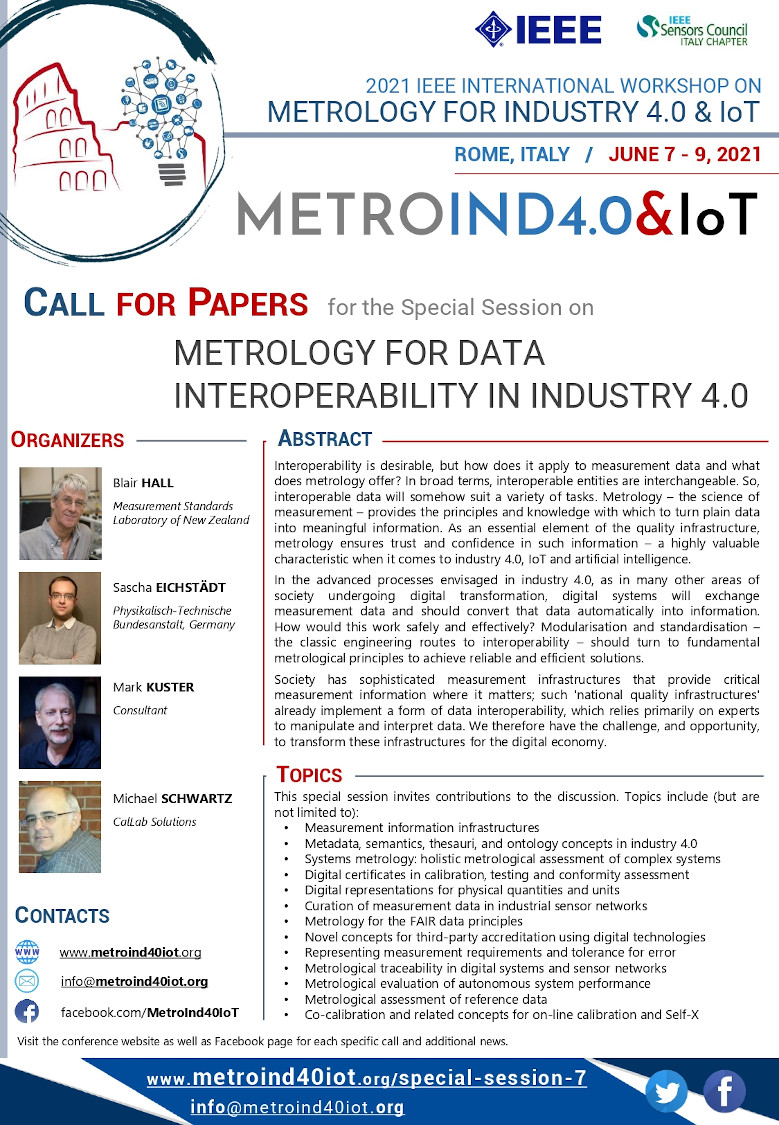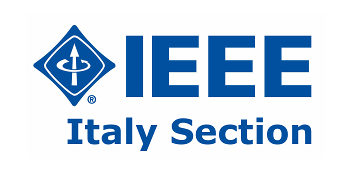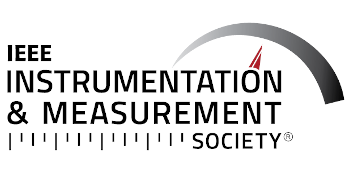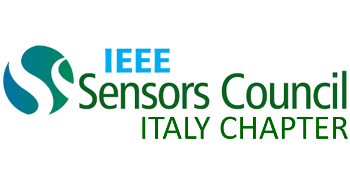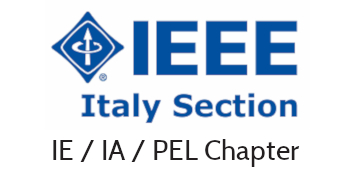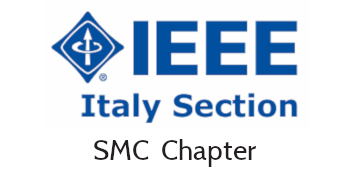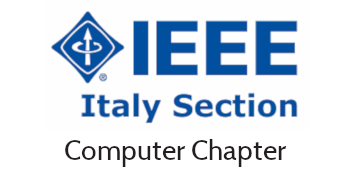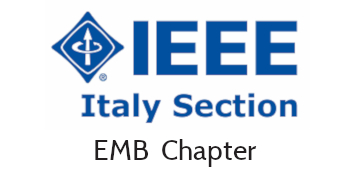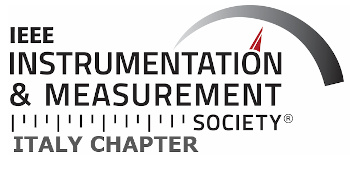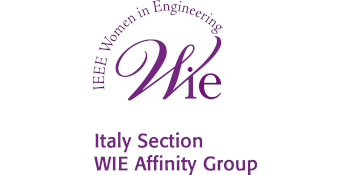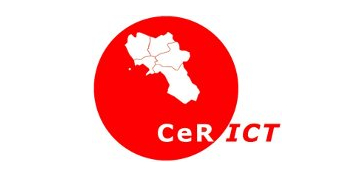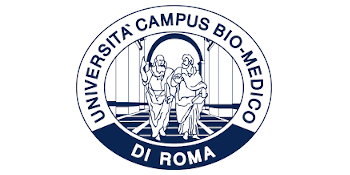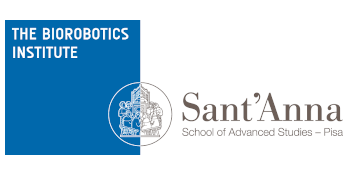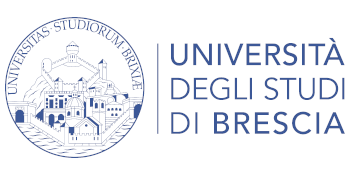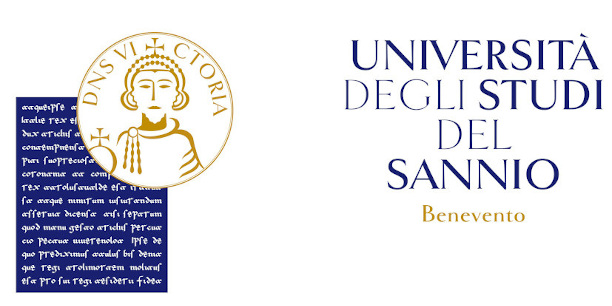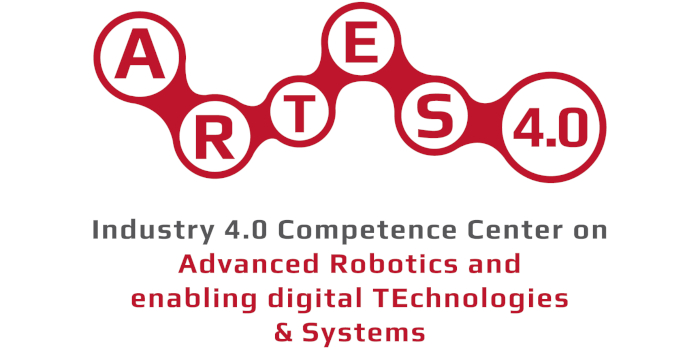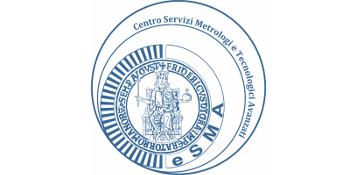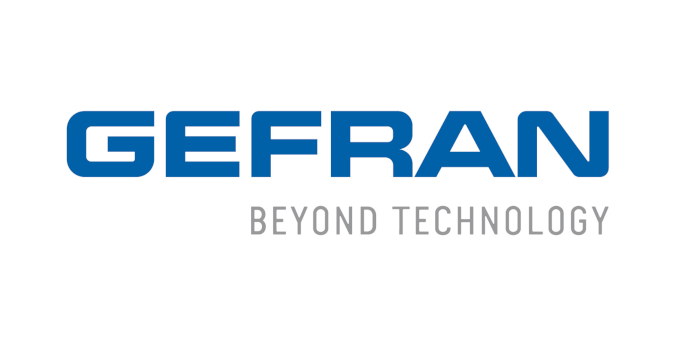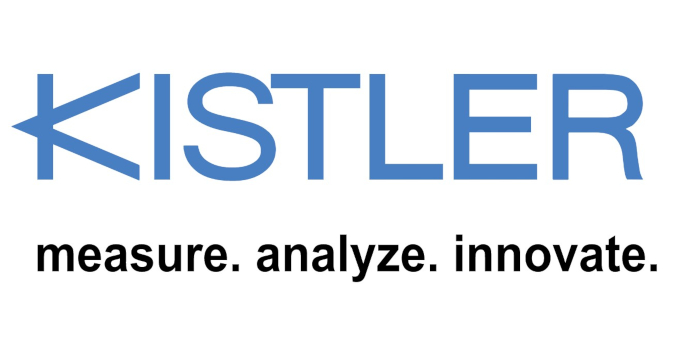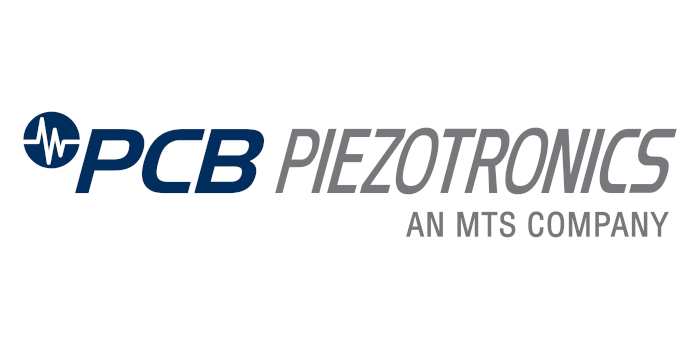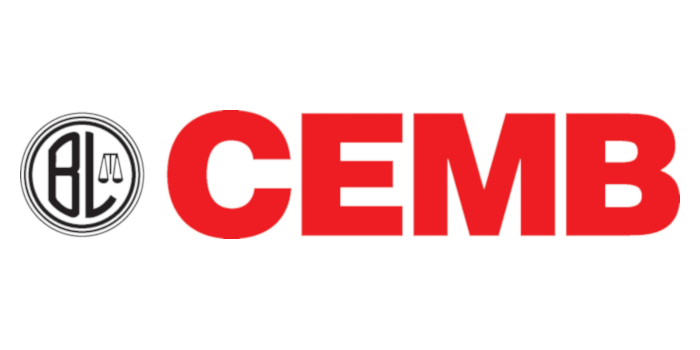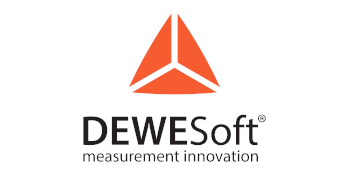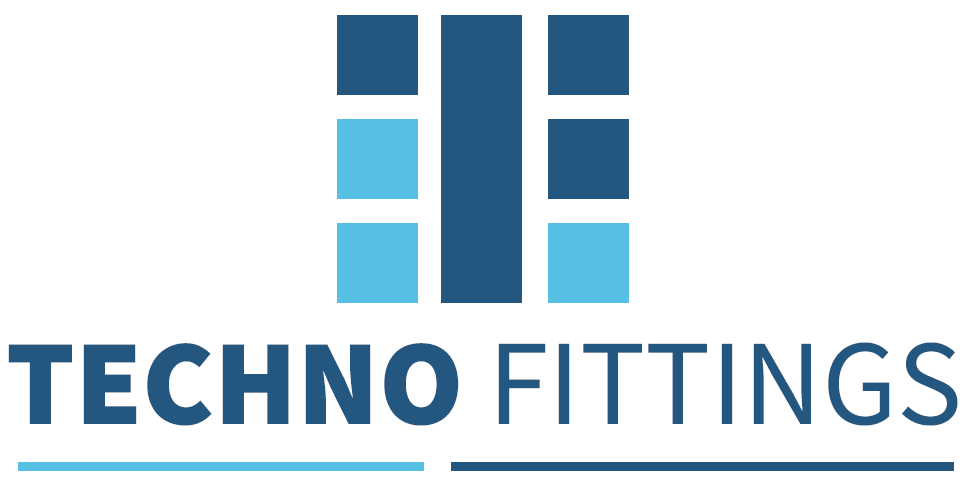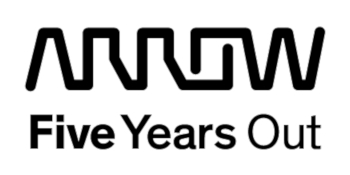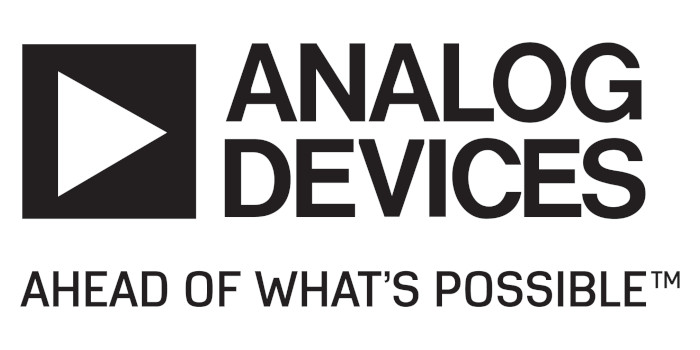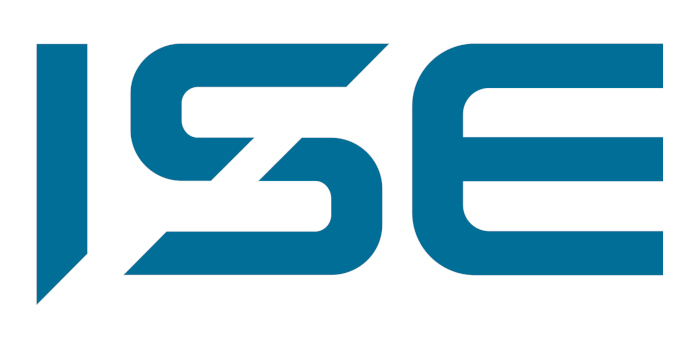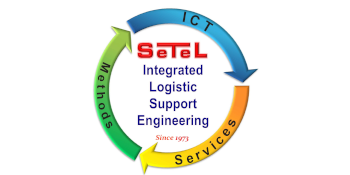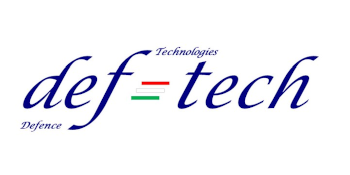Metrology for data interoperability in industry 4.0
ORGANIZED BY

Blair Hall
Measurement Standards Laboratory of New Zealand
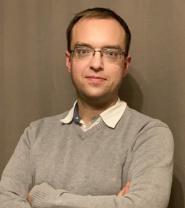
Sascha Eichstädt
Physikalisch-Technische Bundesanstalt
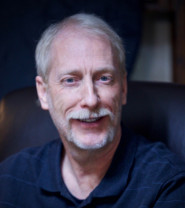
Mark Kuster
Consultant

Michael Schwartz
CalLab Solutions
ABSTRACT
Interoperability is desirable, but how does it apply to measurement data and what does metrology offer? In broad terms, interoperable entities are interchangeable. So, interoperable data will somehow suit a variety of tasks. Metrology – the science of measurement – provides the principles and knowledge with which to turn plain data into meaningful information. As an essential element of the quality infrastructure, metrology ensures trust and confidence in such information – a highly valuable characteristic when it comes to industry 4.0, IoT and artificial intelligence.
In the advanced processes envisaged in industry 4.0, as in many other areas of society undergoing digital transformation, digital systems will exchange measurement data and should convert that data automatically into information. How would this work safely and effectively? Modularisation and standardisation – the classic engineering routes to interoperability – should turn to fundamental metrological principles to achieve reliable and efficient solutions.
Society has sophisticated measurement infrastructures that provide critical measurement information where it matters; such 'national quality infrastructures' already implement a form of data interoperability, which relies primarily on experts to manipulate and interpret data. We therefore have the challenge, and opportunity, to transform these infrastructures for the digital economy.
TOPICS
This special session invites contributions to the discussion. Topics include (but are not limited to):
- Measurement information infrastructures
- Metadata, semantics, thesauri, and ontology concepts in industry 4.0
- Systems metrology: holistic metrological assessment of complex systems
- Digital certificates in calibration, testing and conformity assessment
- Digital representations for physical quantities and units
- Curation of measurement data in industrial sensor networks
- Metrology for the FAIR data principles
- Novel concepts for third-party accreditation using digital technologies
- Representing measurement requirements and tolerance for error
- Metrological traceability in digital systems and sensor networks
- Metrological evaluation of autonomous system performance
- Metrological assessment of reference data
- Co-calibration and related concepts for on-line calibration and Self-X
ABOUT THE ORGANIZERS
Blair Hall: Blair works at the Measurement Standards Laboratory of New Zealand where he leads a project in data metrology. Until recently, he was responsible for New Zealand’s radio and microwave frequency measurement standards and was particularly interested in problems relating to measurement uncertainty in that field. Blair holds a doctorate in experimental physics from the Ecole Polytechnique Fédérale de Lausanne (EPFL), Switzerland, and has worked at the Swiss national metrology institute (METAS) and at Massey University, New Zealand, where he lectured in physics and electronics.
Sascha Eichstädt is a metrologist at the Physikalisch-Technische Bundesanstalt (PTB) in Germany since 2008. He holds a PhD in Theoretical Physics from the Technical University Berlin and a diploma in Mathematics from the Humbold-University Berlin. At PTB he was initially responsible for the development of mathematical and statistical methods for the evaluation of uncertainties in dynamic measurements. He has developed the initial version of the open-source software library PyDynamic for uncertainty propagation in signal processing tasks. Since 2017 he is leading PTB's efforts in digitalisation as head of the working group "Coordination Digitalisation" in PTB's presidential staff.
Mark Kuster holds Bachelor of Science degrees in Electrical Engineering and Physics from Southern Methodist University and a Master of Science degree in Electrical Engineering from the Georgia Institute of Technology. He consults with 30 years of metrology experience. He chairs the NCSLI Metrology Practices and MII-Automation Committees, writes the Metrologist "Toward a Measurement Information Infrastructure Column", and serves as Managing Editor for NCSLI Measure: The Journal of Measurement Science.
Mr. Schwartz completed training at Lowry AFB in 1989 and was honorably discharged after 11 years of serving in the US Army. He graduated from the University of Maryland with a degree in Business Management and a minor in Computer Science. After leaving the military, he spent the first five years as Intercal’s lead developer writing automation calibration software before starting his own company. Since 2003, as the principal owner of Cal Lab Solutions, he worked to develop the world’s largest library of MET/CAL® procedures as well as designed and developed a whole new metrology software platform, Metrology.NET®.

